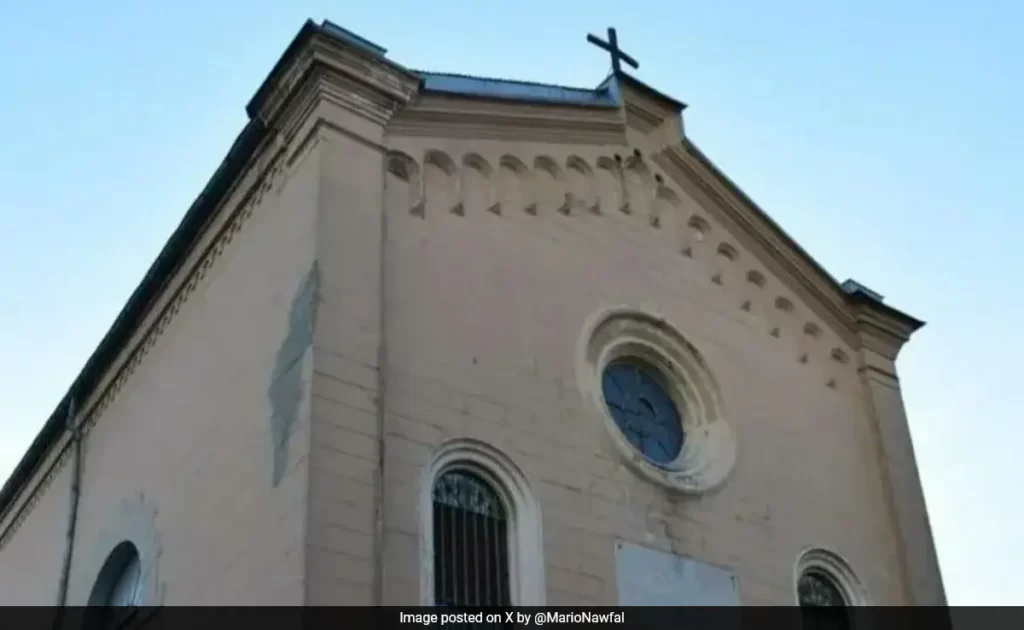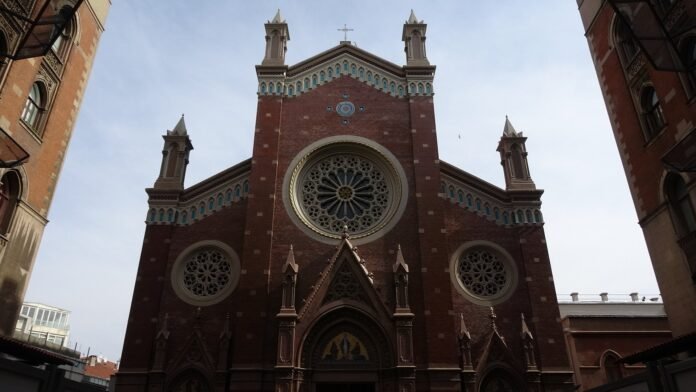A shocking incident took place in Istanbul. Two masked men launched a brazen attack on an Italian church, leaving one person dead and sending shockwaves through the community.
The assailants, their identities concealed behind masks, targeted the church during a worship service, catching the congregation by surprise. The swift and brutal nature of the attack has raised concerns about the security of religious institutions and the safety of worshippers in the bustling metropolis.
Eyewitnesses reported that the attackers stormed into the church premises, brandishing weapons and unleashing a barrage of gunfire. Panic ensued as worshippers, caught off guard, sought refuge and attempted to escape the chaos that unfolded within the sacred space.
Tragically, one person lost their life during the attack, succumbing to the indiscriminate violence that gripped the Italian church. The victim’s identity and details surrounding the circumstances of their death are yet to be officially disclosed, heightening the sense of urgency for a thorough investigation into this horrific incident.
Law enforcement swiftly responded to the scene, sealing off the area and initiating a manhunt for the assailants. The motive behind the attack remains unclear, leaving authorities to explore various possibilities, including religious extremism, targeted violence, or potential links to organized crime.
More About Istanbul Church Attack
The international community has expressed its shock and condemnation of the attack, with diplomatic missions and religious leaders denouncing the act of violence against a place of worship. The Italian government, in particular, has called for a transparent and thorough investigation to bring the perpetrators to justice and to ensure the safety of its citizens abroad.

Security measures around churches and religious institutions in Istanbul have been heightened in the aftermath of the attack. Authorities are working diligently to provide reassurance to the community and to prevent any potential follow-up incidents that may arise in the wake of such a brazen act of violence.
The incident has sparked discussions about the broader issue of religious tolerance and the need for increased security measures to protect places of worship. In a world grappling with various challenges, the sanctity of these spaces, where people seek solace and connection, becomes even more crucial.
As the investigation into the attack unfolds, there is a collective call for unity and solidarity in the face of violence. Religious leaders from various faiths have come together to condemn the act, emphasizing the importance of fostering understanding and tolerance in diverse societies.
The international response to the attack has been swift and resolute. Diplomatic channels are actively engaging to ensure that the perpetrators are swiftly brought to justice. The attack on a place of worship, irrespective of the motive, has ignited concerns about the broader challenges of extremism and violence targeting religious institutions.
Security experts are closely examining the details surrounding the attack, considering various factors that may have contributed to this tragic event. Places of worship, being symbols of community and faith, have unfortunately become targets in some instances, necessitating a comprehensive review of security protocols to safeguard worshippers.
The incident has also triggered discussions about the need for global collaboration in addressing the root causes of violence targeting religious institutions. Governments, law enforcement agencies, and international organizations are exploring avenues for increased cooperation to prevent such incidents and ensure the safety of communities around the world.
In the aftermath of the attack, communities are coming together to offer support to those affected. Vigils, interfaith gatherings, and expressions of solidarity are taking place to condemn the violence and to promote unity in the face of adversity. Leaders from various religious backgrounds are emphasizing the shared values of compassion and tolerance that bind humanity together.
The tragic event in Istanbul serves as a stark reminder that acts of violence can occur even in places considered sanctuaries of peace. It underscores the importance of fostering a global environment that rejects extremism and promotes understanding among diverse communities. The incident sparks a renewed commitment to building bridges of dialogue and cooperation to counter the forces that seek to divide and sow discord.
As authorities continue their investigation, the world watches closely, hopeful for justice for the victim and their grieving community. The attack on the Italian church in Istanbul is not just a local tragedy but resonates globally, prompting a collective call to address the root causes of violence and to fortify the shared commitment to peaceful coexistence.

